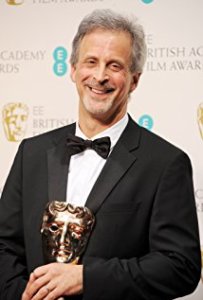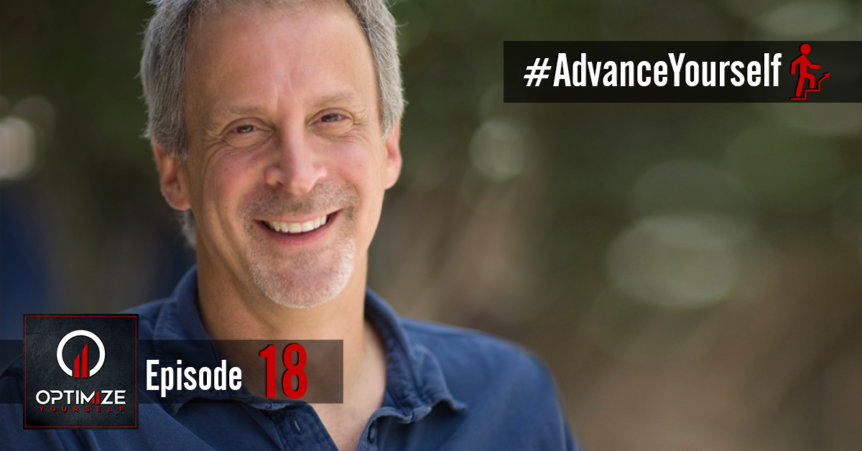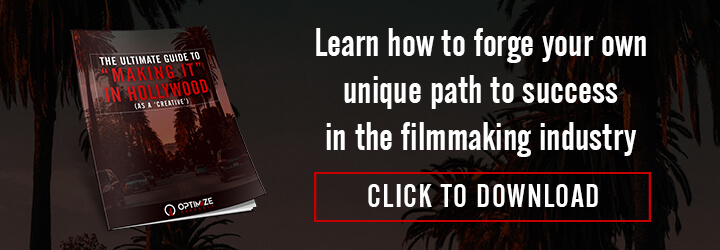Billy Goldenberg is the Oscar-winning film editor of such films as Detroit, Argo, Zero Dark Thirty, The Imitation Game, several of the Transformers films, the National Treasure franchise, and many more. He’s done numerous collaborations with Michael Mann, Ben Affleck, Michael Bay, and he even won his Oscar the same year that his mentor Michael Kahn was nominated (if you’re not familiar with Michael Kahn, he’s Steven Spielberg’s longtime editor and collaborator). Needless to say, Billy Goldenberg knows a thing or two about what it takes to be successful in Hollywood.
Sure, it’s easy to look at someone’s career like Billy’s from the outside and think, “Yeah it’s amazing what he’s done with his career, but c’mon, the guy was Michael Kahn’s assistant editor…there’s no way I’m going to be able to be as successful as he was!” there are actually fundamental steps you can extract from anyone’s career journey and apply to your own, and Billy is no different.
In this episode rather than chatting about the ins-and-outs of film editing, Billy and I walk through his path from the beginning to where he is now and break down some of the lesser known skills necessary to be successful in any creative field where you collaborate with others on a regular basis.
We discuss how important it is to respect the job you currently have and do great work at it while also being honest about what you want to do next, how honest you really should when giving your thoughts and feedback to producers and directors, the editor as the psychologist of filmmaking, and what it takes to move forwards given how demanding your current job probably already is, just to name a few examples.
Want to Hear More Episodes Like This One?
» Click here to subscribe and never miss another episode
Here’s What You’ll Learn:
- Working hard at the job you’re given
- Learning to assess your place along your career ladder
- How to to give honest criticism without creating bad work relationships
- When to trust the process and when to carve your own path
- Learning how to take criticism and not take your creative work personally
- How to move up given the demands of working long hours as an assistant
- How to approach your editor to cut your own scenes
- What it’s like to work with Michael Mann and Michael Bay
- Strategies to stay active and endure the long hours
- When to draw the line on poor working conditions
- The importance of attitude!!!
Useful Resources Mentioned:
Our Generous Sponsors:
This episode is made possible by Ergodriven, the makers of the Topo Mat, my #1 recommendation for anyone interested in moving more at their height-adjustable workstation. Listen, standing desks are only great if you’re standing well, otherwise you’re constantly fighting fatigue and chronic pain. Not like any other anti-fatigue mat, the Topo is scientifically proven to help you move more throughout the day which helps reduce discomfort and also increase your focus and productivity. And they’re really fun and a great conversation starter.
Guest Bio:

William Goldenberg (born November 2, 1959) is an American film editor. He has more than twenty film and television credits since 1992. He won the Academy Award for Film Editing for the film Argo (2012), and has been nominated for The Insider (1999), Seabiscuit (2003), Zero Dark Thirty (2012) and The Imitation Game (2014). He has also received nominations for nine other editing-related awards
Goldenberg has had an extended, notable collaboration with the director Michael Mann. Goldenberg has been elected to membership in the American Cinema Editors
Show Credits:
This episode was edited by Curtis Fritsch, and the show notes were prepared and published by Jakin Rintelman. Special thanks to Krystle Penhall and Sarah Furie for helping to spread the love!
The original music in the opening and closing of the show is courtesy of Joe Trapanese (who is quite possibly one of the most talented composers on the face of the planet).
Note: I believe in 100% transparency, so please note that I receive a small commission if you purchase products from some of the links on this page (at no additional cost to you). Your support is what helps keep this program alive. If you have any questions, please don’t hesitate to contact me.



